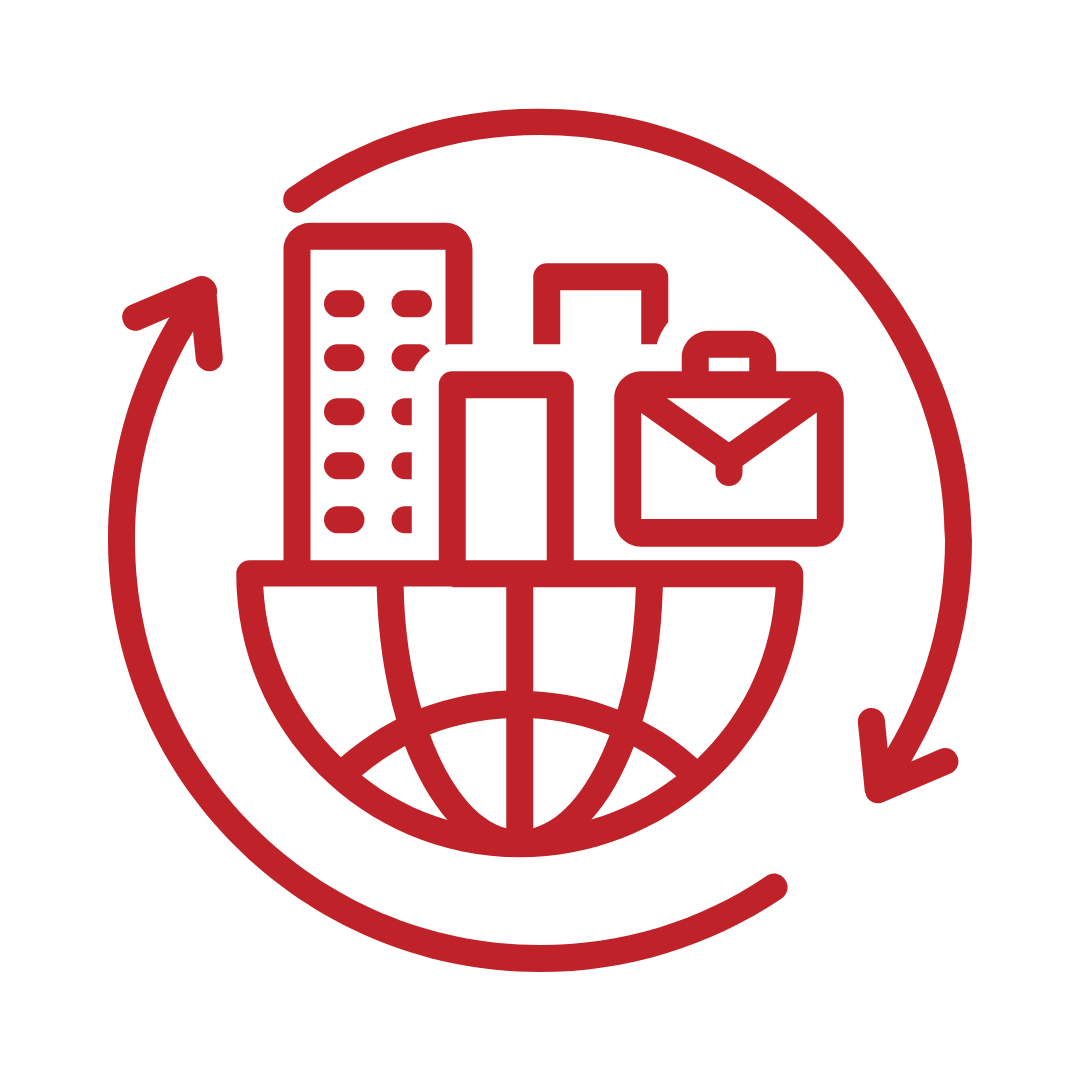Expert Gap Identification Service
Get Professional gap identification Support Through PhD Assistance Research Lab
Literature Review Gap Identification for PhD Research
Expert Gap Identification for Your PhD Literature Review
From Top-Class Universities Across the Globe
Identifying the right research gap is the backbone of any PhD dissertation. Without it, research questions lack focus, and the study risks becoming repetitive or irrelevant. Unfortunately, many scholars—whether in the US, UK, Australia, China, Brazil, Singapore, Malaysia, Indonesia, or elsewhere—struggle with this step.
Why Research Gap Identification Matters
A research gap is not just an academic formality—it is the key that unlocks your dissertation. It:
- Offers rationale for your study.
- Provides strong, relevant research questions.
- Helps ensure that your work is providing something new to your field.
But what happens when or if the gap is either missing or poorly defined?
- You may have weak or repetitive research questions.
- The thesis may lack justification and originality. Examiners may demand major revisions or, in the worst case, reject the dissertation.
- Journals and conferences may see your work as irrelevant and decline publication.
In other words, a poorly defined gap could potentially waste years of work. This is why many PhD Candidates opt to have a gap identified by experts who have the tools, experience, and methodology for correctly identifying an academic gap on the first attempt.
How PhD Assistance Provides Accurate Gap Analysis
PhD Assistance Research Lab combines expertise, established methodology, and access to global academic materials, to deliver accurate and useful research gaps. Here's how we do it:
Expert Researchers in Different Disciplines
Our team is made up of highly qualified PhD scholars and subject-matter experts, which evaluates academic research in different sub-disciplines.Systematic Literature Reviews We systematically review the
literature to assess the current knowledge state in an area, without losing important literature.Contextual Segregation The context of the literature is
examined by concept, geographical context, and multi-component conceptual frameworks to identify gaps frequently overlooked.Critical & Comparative Analysis
Our team compares the results of studies together by examining the strengths, weaknesses, contradictions, and limitations and provides an efficient analysis of the research gapsGlobal Access to Resources
Along with print, processing, and journals--we have endless searchable resources and references, to support your gap analysis with timely and relevant materials.Custom Research Gap Reports
There is no duplication of output. All gap analysis is prepared specifically for your research theme, aims and objectives, and academic requirements.With this capacity, we simplify a complicated and frustrating task into a clear process in aid of your PhD dissertation.
Our Guarantees – Gap Identification Support for PhD Scholars
Plagiarism-Free: made from scratch based on original research, events, and models
AI Detection Approved: All content passes the industry leading AI detection software to ensure that you are doing original, fair and academic work.
We utilize trusted tools to make sure we follow academic integrity with AI detection software and based on university standards, Turnitin, etc.
All our frameworks are custom-built by subject matter experts from top-tier academic and research institutions, across domains such as:
- Computer Science & AI
- Law & Public Policy
- Social Sciences
- Engineering
- Life Sciences
- Medicine & clinical research
- Management & finance
- Philosophy & Humanities
We have a rigorous process for each project we undertake, with professionals such as researchers, educators, licensed professionals, and as many experts as we need to guarantee rigor, depth and accuracy.
We recognize that every school has its own academic requirements–whether that school is IITs, IIMs, Oxford, Harvard, or any institution. We adapt your framework to meet the following:
- Structural and formatting requirements
- Language and stylistic preferences
• Citation and referencing style (APA, MLA, Harvard, Chicago, Vancouver, etc.)
When constructing your framework, we only use reputable, high-impact academic databases, including:
- Scopus
- PubMed
- IEEE Xplore
- JSTOR
- Springer
- Elsevier
- ProQuest
- Web of Science
Each reference will be cited, traceable, and delivered in the selected citation style utilizing Mendeley, Zotero, EndNote, etc
We provide a dedicated team which includes:
- Subject matter writers with research expertise
- Editors with sophisticated English language proficiency, and academic in writing
- Proofreaders with specific training in grammar, style and consistency
We will ensure your final framework is academically sound, logically sound; and communicated effectively.
We believe in perfection through collaboration, which is why we provide:
- Unlimited revisions for free
- Minor revisions (24 hours)
- Major revisions (48 hours)
We work through drafts until your research gap meets the expectations of academia, theory, and methodology.
Your timeline is our commitment, and we guarantee:
- We will respond to communication in 30 minutes during business hours
- Your first draft, and all revisions, will arrive on time
• We will meet deadlines, even when timelines are urgent
Whether the framework you are developing is part of an 8,000-word dissertation or an 80,000+ doctoral thesis, we can adhere to your expected word count required by your university. We do not count anything that isn’t counted (references, appendices, tables, figures), and we never count ‘filler’ content, only academic and relevant writing!
In giving you the opportunity to understand and work with your viva, publish your work or your course work, we can also provide you with the following free of charge:
- Journal articles and PDFs of references
- Datasets and project reports
- Lecture notes and any academic translations
- PPTs, law documents, and links to academics on YouTube
We do this because we want to give you an understanding of what you have and have not done and to reassure you that you are learning, both formally and informally, through your academic study and research.
Service gap identification is a huge part of any academic research project. Whether you are currently developing your PhD proposal or developing your dissertation, our specialists are available to assist you. We understand both theory and practice—we will help you every step of the way to identify and overcome service in your research.
📩 Contact us today to get started.
Our Gap Identification Service by Subject Area
Gap Identification Methods We Employ at PhD Assistance Research Lab
To identify research trends, identify under-researched topics, and identify common gaps in your field.
Where theories or frameworks are incomplete, contradictory, or out-of-date.
Issues about experimental design, tools, or approaches that limit your study.
Where there is little or no real-world data, and you can begin to collect fresh data for new inquiry.
Geographical regions, populations or contexts that existing studies have yet to explore.
where academics have evidence or findings, but evidence and findings where to translate it, into a solution, or an application, or a recommendation.
Whom We Serve – Gap Identification for Your Research
At PhD Assistance Research Lab, we engage with a broad clientele within academia, research, healthcare and business industries by determining important knowledge gaps for further study. Our services ultimately ensure your research is based on originality, relevance and academic merit.
We support PhD students in finding significant research gaps relevant to their own dissertation research. Our services include:
- Collection of Gaps – Identifying under-researched areas in the literature.
- Theoretical Gap Mapping – Identifying missing and/or underdeveloped theoretical threads.
Hypothesis Gap Creation – Developing hypotheses based on gaps identified.
We help universities and departments develop research agendas and programs. Our services include:
- Gap Analysis – Identifying significant gaps in academic literature.
- Transdisciplinary Gap Identification – Identify gaps across multiple disciplines.
- Research Agenda Alignment – Series of studies proposed by institutions that address the heuristic, address gaps and have impact on practice.
• Focus – Increase the academic and practical value associated with the gap identified.
We help independent scholars generate research that matters.
Our services include:
- Gap Identification – Identifying under-researched areas.
- Methodology Matching – Using gaps with weak or inconsistent methodology.
- Hypothesis Formation – Developing clear and testable hypotheses.
• Focus – Ensuring the research is moving in the direction of “real” novelty.
We identify gaps in the medical literature, clinical trials and healthcare results – striving to improve patient-centered research.
Our Services include:
- Clinical Research Gaps – the missing pieces of trials and experimental studies.
- Healthcare Data Gaps – where the data exists but has yet to be put to good use.
- Outcomes Research – the gaps in patient care, gaps and improvements in healthcare elements and performance.
Focus – research that promotes better medical and healthcare actions or practices.
We assist departments, firms and businesses find opportunities that stimulate innovation.
Our services include:
- Innovation Gaps – opportunities to further explore areas that lack creative or technological innovation.
- Market Research Gaps – unmet needs in the marketplace.
- Domain-Specific Gaps – opportunities for product development and service development
Focus – providing actionable insight that can lead to innovation and competitiveness.
We can assist global researchers, and international students address cultural and regional difference in their research.
Our services include:
- Global Research Gaps – Needs that cross international boundaries.
- Cultural Gaps – Research issues connected to cultural or social contexts that have not been researched enough.
- Comparative Gaps – Opportunities for study across different countries or regions.
Focus – Making sure every perspective was considered in academic research.
Gap Identification – Service Packages
Starter Plan
- A discussion on the topic analysis which aligns with research objectives.
- Identification of primary research gaps.
- A basic literature review focusing on gaps within the literature in your field.
- Literature based gap analysis – in depth analysis of the literature.
- Identification of unexplored areas and contradictions from previous studies.
- Identification of underdeveloped themes.
- Diagrammatical representation of the research gaps.
- Complete citations in APA/MLA/Harvard/Chicago style.
- Two revisions round.
- Plagiarism and AI detector clearance report.
- Delivery Time: seven to ten working days.
- Thorough gap identification in line with the research design.
- Combining interdisciplinary views and theories.
- Hypotheses generation based on gap identification (if applicable).
- Diagrams and visuals of research gap(s).
- University specific formatting.
- Unlimited revisions.
- Reference management assistance (EndNote, Zotero, Mendeley).
- Access to cited references and extra materials.
- Delivery Time: 10-14 working days.
- Everything in the Advanced Plan.
- Cross-cultural / contextual gap identification.
- One-on-on consultations with subject matter experts.
- Real time support (chat, email, or video). Advanced visual/data integration for gap complexity mapping.
- Support for viva preparation and journal submission. Delivery Time: 2–4 weeks (project dependent).
Sources Used for Gap Identification at PhD Assistance Research Lab
Google Scholar
Broad access to interdisciplinary literature, that helps us identify emerging issues and topics that had not been fully developed.
JSTOR
a wealth of articles in the humanistic and social sciences that assist in identifying historical gaps in theoretical perspectives and where research themes have emerged over time.
PubMed
A vital resource for biomedical and life sciences, enabling us to spot gaps in clinical research, healthcare models, and medical frameworks.
ProQuest
Access to dissertations, theses, articles, and books—useful for uncovering interdisciplinary and qualitative research gaps.
Scopus
Provides citation analysis to identify key studies, highly cited studies and research areas that require additional investigation on the subject area.
Web of Science
A multidisciplinary platform that highlights gaps across fields and confirms whether your research aligns with cutting-edge needs.
IEEE Xplore
Critical for engineering, technology, and computer science—helping us find gaps in technological theories, industry models, and innovations.
SAGE Journals
Focused on social sciences, management, and education—revealing underdeveloped frameworks and modern research needs.
Embase
Specialized in pharmacology and clinical research, helping us locate overlooked areas in healthcare and patient outcomes.
ACM Digital Library
A leading resource for computing and IT, exploring gaps in emerging technologies and under researched phenomena.
RefWorks
Maintains references organized systematically, cited and reference managed, taking something with real rigor to looking for gaps, has a transparency to it.
Statista
Provides a level of statistical knowledge for market and economic research with a target on our data-informed gaps and - more specifically - areas where industry needs are emerging.
Check What Stage You’re In & See How You Fit into Our Engagement Model
Johnson

Gap Identification & Analysis We help you map existing literature and now see the blind gap areas, structure your working theories and create a cohesive framework that shows your gaps where you couldn't see before.
Dale

Research Gaps from Reference Review We will model your references to see which studies actually cut the gaps you prepared to address and help you or help you filter through the noise so you only consider the areas that support your objectives.
Ben

Gap Identification & Relevance Analysis We will evaluate the models you built from your work and collected against the literature to ensure your framework has a focused relevance on the gap you will address, most impactful strategies that are also gaps in your field, and the least researched gaps.
Dwayne

Gap Identification for Credibility & Relevance We assess whether your chosen theories and models bridge significant academic gaps and meet reliability standards, so your framework stands on credible and trustworthy foundations.
Our Sample & Example Works Speaks



Order process
Submit Your Requirements & Make Payment
Order Confirmation
&
Expert Allocation
Gap Identification Framework & Refinement
Regular Updates & Two-Way Communication
Review
&
Unlimited Revisions
Final Delivery
&
Feedback
Our Guarantee
What We promise, we deliver exactly the same

Plagiarism Free

Unlimited Support

On-time delivery

Subject Matter Expertise

Communicate with your writer

Updated academic resources

Free research articles supply*
Client success stories
Gap Identification Service
Identifying Research Gaps, Ease of Use

"I had difficulty identifying where the key gaps in the current literature were for my framework. PhD Assistance Research Lab identified for me the highest impact gaps to ensure I was developing my project in areas considered underexplored. This allowed me to confidently focus on my framework!"
-- Sophie Laurent, France, PhD Candidate
Fast Gap Identification & Alignment with Research

"I had a short deadline to identify the missing gaps of research that would be critical to develop my conceptual framework. PhD Assistance helped me with a fast process in identifying the gaps I deemed most relevant while aligning them with my research objectives, so I wouldn't miss my deadlines and research decision quality!"
-- Jonas Weber, Doctoral Candidate, Germany
Comprehensive Gaps review

"PhD Assistance helped isolate gaps in the existing research, and ensure it was an evidence-based framework why they were gaps. Their review of gaps was comprehensive and enabled me to move forward confidently with my literature review and analysis!"
-- Isabella Rossi, Medical Researcher, Italy
Help with Identifying Gaps in Qualitative Data

"I had more than enough qualitative data, but I was unable to highlight gaps in the literature informing the data. Ultimately, PhD Assistance helped me discover these gaps and identify the most relevant theories which really provided more productivity in developing my framework!"
— Emma Johansson, Sweden, PhD Student
Help with Identifying and framing Research Gaps

"I struggled when it came to explaining the gaps that my research was addressing. PhD Assistance pushed me to establish clear research gaps which meant I could lay out my framework with great ease to include in my dissertation!"
— Luca Bianchi, Italy, Doctoral Candidate
Affordable Pricing"

“I fully admire PhD assistance's reputation and quality. I especially chose PhD assistance's packages as no other company offers such a service. Their service quality and timely delivery is very helpful in meeting journal deadlines. I am glad that PhD assistance offers packages at affordable price.”
-Kate Merkel-Hess
Supportive brainstorming and topic discovery

"Picking a topic for my PhD felt like looking for a needle in a haystack. I was lost until I found the topic selection guidance service at PhD Assistance. They were like personal academic cheerleaders—helping me discover what I truly cared about and could research meaningfully. It was like a brainstorming session with friends who knew their stuff. Now I’m excited to dive into my research and make a difference!"
PhD topic clarity and direction

"Choosing a PhD topic was a total headache until I stumbled upon the PhD Thesis Dissertation Topics Help UK at PhD Assistance. Let me tell you—these guys are wizards when it comes to turning confusion into clarity. They didn’t just throw random ideas at me; they took the time to understand what I was passionate about and what I wanted to achieve. It felt like having a coffee chat with a smart friend who knows all about PhDs. Thanks to their help, I finally feel like I’m on the right track and ready to tackle anything that comes my way!"
Stress-free topic selection in Computer Science

"I was very confused about selecting a research topic for my PhD in computer science. It was stressful and overwhelming. A friend recommended PhD Assistance—and it was the best decision. The expert helped me choose a topic that my guide accepted without any changes. Thank you, PhD Assistance!"
Confidence-building experience

"I recommend PhD Assistance to anyone needing help with research topic selection. I was hesitant at first, but after meeting the team, I gained confidence in articulating my ideas clearly. The title they provided matched exactly what I had in mind—it felt like they had read my thoughts. Thank you!"
Structured support for academic success

"I was feeling overwhelmed and lost when it came to choosing a PhD topic that would truly excite me and contribute to the field. Thankfully, the topic selection service at PhD Assistance gave me invaluable support. They took the time to understand my interests, strengths, and goals and curated a list of focused research areas. I found a topic that reignited my passion. Thank you, team!"
John, France
Flexible and student-friendly service

"PhD Assistance offered me great flexibility in choosing courses and research areas. The specialists helped me identify a unique and meaningful topic. It gave me a strong foundation to move confidently into the next stage of my research."
Liam
Supportive brainstorming and topic discovery

"Picking a topic for my PhD felt like looking for a needle in a haystack. I was lost until I found the topic selection guidance service at PhD Assistance. They were like personal academic cheerleaders—helping me discover what I truly cared about and could research meaningfully. It was like a brainstorming session with friends who knew their stuff. Now I’m excited to dive into my research and make a difference!"
Supportive brainstorming and topic discovery

"Picking a topic for my PhD felt like looking for a needle in a haystack. I was lost until I found the topic selection guidance service at PhD Assistance. They were like personal academic cheerleaders—helping me discover what I truly cared about and could research meaningfully. It was like a brainstorming session with friends who knew their stuff. Now I’m excited to dive into my research and make a difference!"
Quality & Compliances
We’ve worked on so many great PhD projects for our clients across the globe, and we’re proud of every single task that we carry out
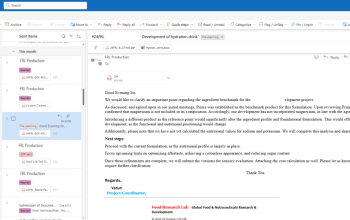
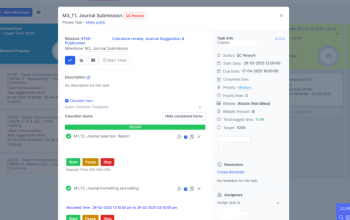
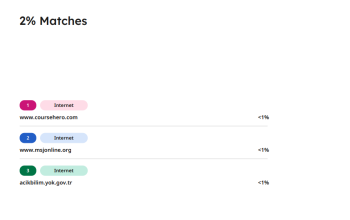
Frequently Asked Questions
We employ a systematic approach whereby we review the literature, map the trends in research, and critically appraise the literature in your field of study. This approach will identify unexplored, under-researched or unexplained areas of research that will yield a concise research problem and will help you ensure your dissertation is both relevant and original.
- An extensive literature review.
- A mapping of trends in research.
- A critical appraisal of existing theories in your field.
- An identification of both theoretical and practical gaps.
- An identification of trends and priorities.
- A clarification of issues.
- An originality and contribution to the academic landscape.
Yes! We do gap analysis in engineering, computer science, social sciences, management, medical & clinical research, humanities, and other fields. Every gap analysis is designed to your specific subject area and research objectives.
Yes. All packages provide free revision requests until the gap analysis meets your expectations and fits your research needs.
You will be given a formatted Gap Identification Report that includes:
- Indicated gaps with rationale.
- Literature mapping and references.
- Visuals such as charts or diagrams (if included in your plan).
Required academic referencing (APA/MLA/Harvard/Chicago).
Delivery is dependent on the package you selected.
- Starter Plan: 5–7 working days
- Standard Plan: 7–10 working days
- Advanced Plan: 10–14 working days
- Custom Plan: 2–4 weeks
- Structured, systematic, peer-reviewed method.
- Access to the best academic databases (e.g, Scopus, PubMed, IEEE, Web of Science).
- Subject-matter experts across disciplines.
- Confidential, original, customized reports.
You might also be interested in these:

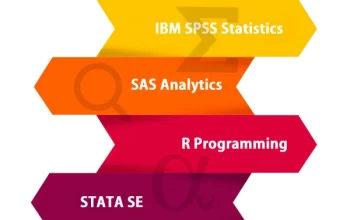

Identifying research problems in Explainable Artificial Intelligence (XAI)
The rapid growth and use of artificial intelligence (AI)-based systems…




